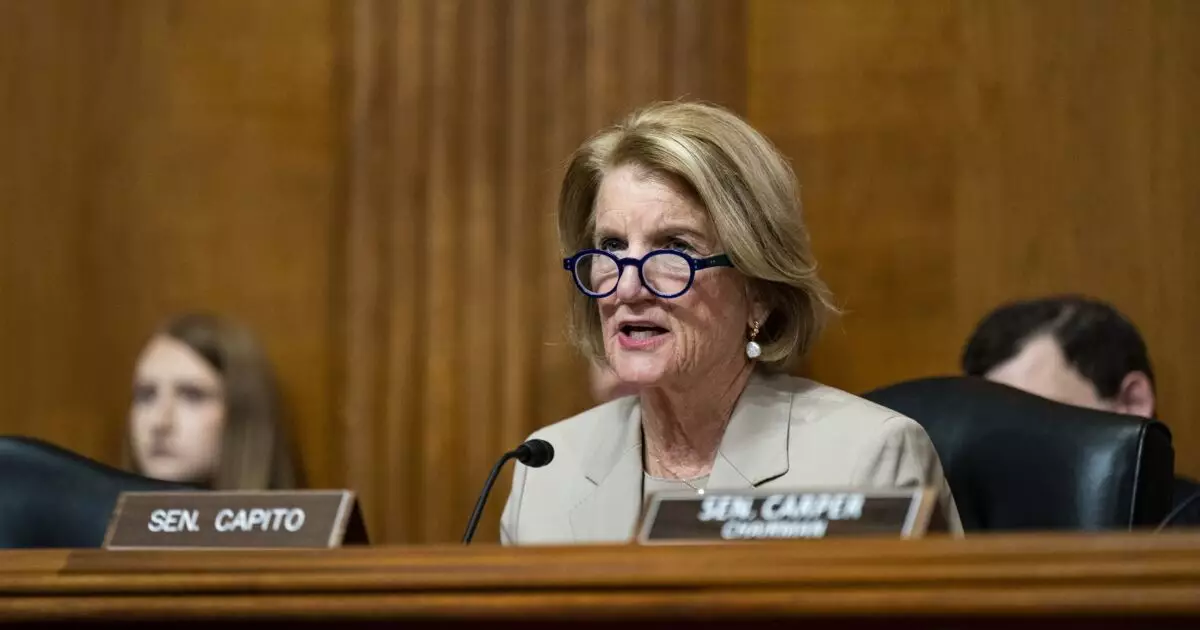The recent passing of the Accelerating Deployment of Versatile, Advanced Nuclear for Clean Energy Act in the U.S. Senate has sparked discussions about the future of nuclear power production in the country. With bipartisan support, this legislation is set to encourage innovation and investment in nuclear technologies within the United States. It aims to streamline the regulatory processes for licensing advanced nuclear reactor technologies, ultimately paving the way for faster deployment of nuclear projects. Sen. Shelley Moore Capito expressed her support for the bill, emphasizing the importance of enhancing the efficiency of the Nuclear Regulatory Commission’s regulatory mission.
Industry trade groups like the Nuclear Energy Institute have also welcomed the passage of this legislation. Maria Korsnick, the president and CEO of the NEI, highlighted the significance of modernizing the NRC to handle the increasing number of applications for license renewals, power uprates, and next-generation nuclear deployments. The support from these industry experts indicates a positive outlook on the potential advancements in the nuclear energy sector.
The issuance of a Notice of Intent by the U.S. Department of Energy to fund up to $900 million for the initial U.S. deployments of light water Small Modular Reactor technologies aligns with the objectives of the bill. SMRs offer scalability options with different production capacities and coolant choices, making them a promising solution for future energy needs. The funding from the Bipartisan Infrastructure Law aims to support the development and implementation of these innovative reactor technologies, further driving the transition towards carbon-neutral power generation.
As the U.S. strives to achieve net-zero emissions by 2050, nuclear power is increasingly viewed as a viable option to meet the country’s clean energy goals. The Advance Act is expected to strengthen the nuclear workforce, facilitate the deployment of advanced reactors, and promote the reuse of Brownfield sites for energy transition purposes. Sen. Sheldon Whitehouse emphasized the role of this legislation in lowering regulatory barriers and aiding in the coal-to-nuclear transition, indicating a strategic approach towards achieving sustainable energy solutions.
Recent developments like the Unit 4 nuclear reactor at Plant Vogtle in Georgia coming online showcase the progress in nuclear energy projects in the U.S. Despite setbacks like the cancellation of an SMR project in Idaho, the overall momentum towards advancing nuclear technologies remains strong. The construction of modern reactor designs and the utilization of innovative solutions highlight the industry’s commitment to embracing cleaner and more efficient energy sources for the future.
The Accelerating Deployment of Versatile, Advanced Nuclear for Clean Energy Act represents a significant step towards shaping the future of nuclear energy in the U.S. By prioritizing innovation, efficiency, and sustainability, the legislation sets a foundation for accelerating the deployment of advanced nuclear technologies and supporting the transition towards cleaner energy production. With continued support from government entities, industry stakeholders, and the public, the nuclear energy sector is poised to play a crucial role in achieving a greener and more sustainable future for the country.

